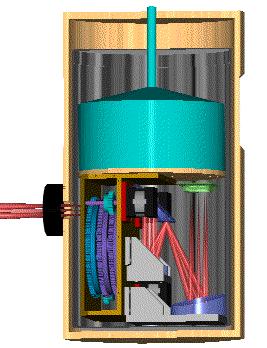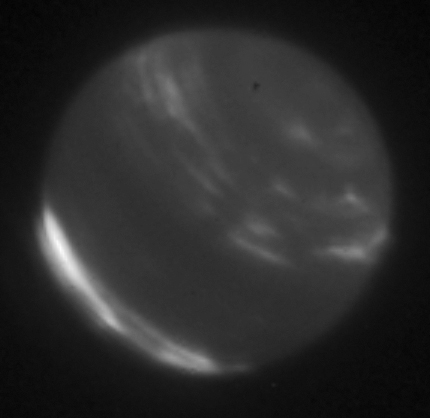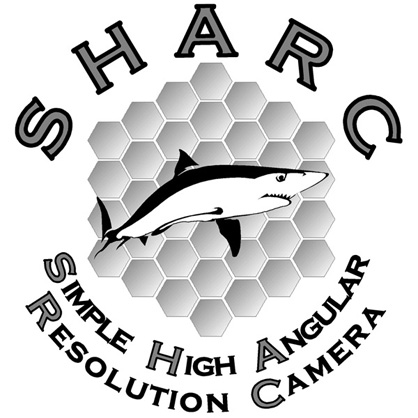SHARC
Simple High Angular Resolution CameraPrinciple Investigator: James Larkin (UCLA)Co-Investigator: Ian McLean (UCLA) Co-Investigator: Bruce Macintosh (LLNL) Science and Integration Team: James Larkin Matthew Barczys Shelley Wright Engineering Team: Jason Weiss Nick Magnone Michael Spencer John Canfield Gunnar Skulason |
 |
SHARC is a diffraction limited infrared camera designed for the Keck Adaptive Optics System. It has been approved by the Keck Science Steering Committee and funded by the CARA board that oversees Keck. SHARC is a fast-track instrument that fills an immediate need for a wide field AO camera to work with the Keck-I AO system.
SHARC's completion was timed to coincide with the implementation of the next generation wavefront controller system (NGWFC) for Keck I Adaptive Optics (AO) system and the new Keck I laser (LGS-AO) system, which both require an imaging camera behind the AO system for engineering tests.
SHARC at a glance:
| Detector | Rockwell Hawaii-1 Engineering Grade Array |
| Detector Electronics | 4-Channel Leach II IR System |
| Wavelength Coverage | 0.85 - 2.4 microns |
| Pixel Scale | 0.019"/pixel |
| Effective Field of View | 15.0" x 18.6" |
| Filters | 5 Broadband filters (z, J, H, K, K'), 8 Narrowband filters (Jn2, Jn3, Hn2, Hn3, Hn4, Kn2, Kn3, Kn4) , 2 Line specific filters (HeI, FeII_H), and 3 neutral density filters |
| Slits | 25 and 50 micron slits, Five 25 micron pinholes, One 10 micron pinhole, 1" Coronagraphic Stop, 2" Coronagraphic stop, and one Closed Position |
| Throughput | 33% including filter, window, mirrors, and detector |
| Read Noise | 20 e- (measured in IR Lab) |
| Gain | 5.5e- per DN (measured in IR Lab) |
2nd light H-band image of Neptune which we achieved on June 8, 2006
with the Keck-I Natural Guide Star system:


